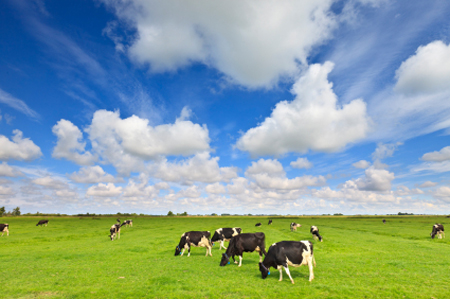Standing up for Wisconsin’s Dairy Farmers
Category: Dairy
 (Wisconsin State Farmer) – Canada is the top international trading partner with Wisconsin, a partnership that raises living standards on both sides of the border by promoting job creation and increasing markets for Wisconsin manufactured goods and agricultural commodities. Over the past five years, Wisconsin exported $358 million worth of dairy products to Canada.
(Wisconsin State Farmer) – Canada is the top international trading partner with Wisconsin, a partnership that raises living standards on both sides of the border by promoting job creation and increasing markets for Wisconsin manufactured goods and agricultural commodities. Over the past five years, Wisconsin exported $358 million worth of dairy products to Canada.
But this mutually beneficial relationship is being threatened by Canadian dairy policies.
This past spring, the Province of Ontario instituted a new pricing policy designed to discourage U.S. exports of ultra-filtered milk.
Grassland Dairy, a primary Wisconsin shipper, tells us they have already lost a big portion of their ultra-filtered milk sales and are down at least 50 percent in volume from last year. Grassland had previously estimated they were shipping about $100 million of ultra-filtered milk.
In addition, the Canadian dairy industry has targeted U.S. exports by proposing new incentives for processors to purchase Canadian milk – while at the same time illegally subsidizing the export of Canadian dairy products in excess of Canada’s World Trade Organization (WTO) obligations.
The Canadian government is reportedly seeking to implement this program nationally – on top of the tight restrictions and steep tariff barriers already levied on imported products.
Last June, I expressed my concerns about these policies directly to U.S. Trade Representative Michael Froman and U.S. Department of Agriculture Secretary Tom Vilsack. Canada’s protectionism is already costing Wisconsin’s dairy industry.
Grassland had anticipated growth in sales were it not for the looming Canadian regulations, which impact their product offerings, their ability to fill product orders, and to purchase dairy by-products from other Wisconsin plants.
As a result, while Grassland’s margins and profit have been hurt this year, the impact goes beyond a single company. Looking toward next year, Grassland will be forced to limit its milk purchasing commitments from farmers and supplying cooperatives, which hurts their bottom lines as well.
There is no need for an investigation, as some have requested. We already know that the protectionist trade actions taken by the Canadian government are harming Wisconsin’s dairy industry right now. We know these policies violate current trade agreements and put our U.S. producers at an unfair disadvantage. We don’t need to investigate, we need to act.
That’s why I am tasking Ben Brancel, Wisconsin’s agriculture secretary, to discuss these issues with the Canadians and tell them that its protectionist dairy policies strike at the heart of America’s Dairyland.
Secretary Brancel, along with other state agriculture leaders, will keep pressure on Canadian government officials to live up to their international trade commitments so we can avoid costly retaliatory measures that could harm agriculture industries on both sides of the border. Canada is the biggest export market for Wisconsin agriculture products, accounting for $1.5 billion in annual export product value in 2015.
Even the best of friends have disagreements from time to time. I believe that differences between good neighbors are best worked out in an atmosphere of friendship and cooperation, especially when we share a mutual interest in promoting fair trade, which benefits all our citizens.
But our state, federal, and dairy industry officials all agree: These dairy issues are particularly serious and different. There has already been harm done.
Our Canadian friends must understand that our current and future trade relationships depend on their compliance with the agreements they’ve signed. How they respond to our concerns about dairy may cause us to re-evaluate our trade relationship with Canada as a whole. It is in their long-term interest to keep their word with us on dairy trade.
That’s the message we will continue to deliver to the Canadians, working with state, federal, and industry officials: Uphold our international trade agreements and level the playing field for our dairy producers in the Canadian markets.




